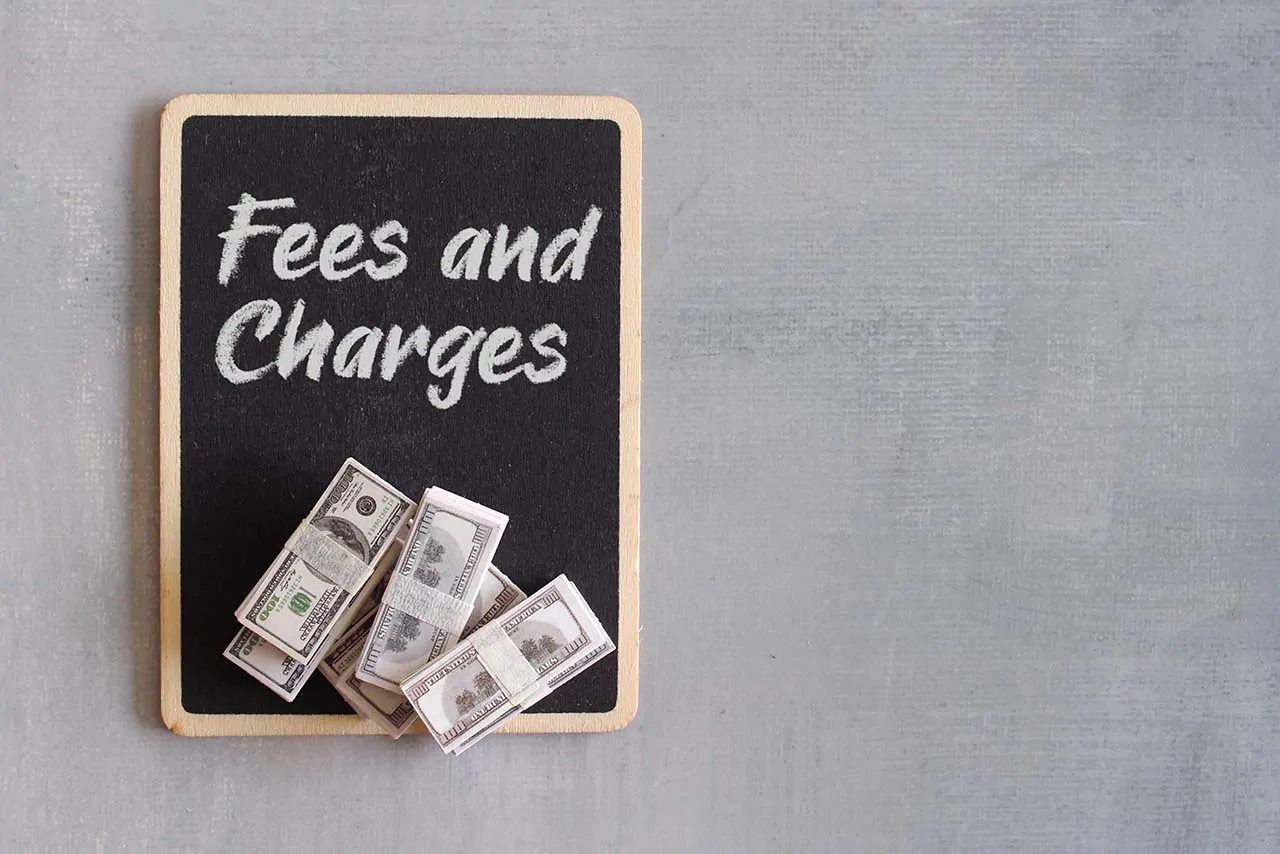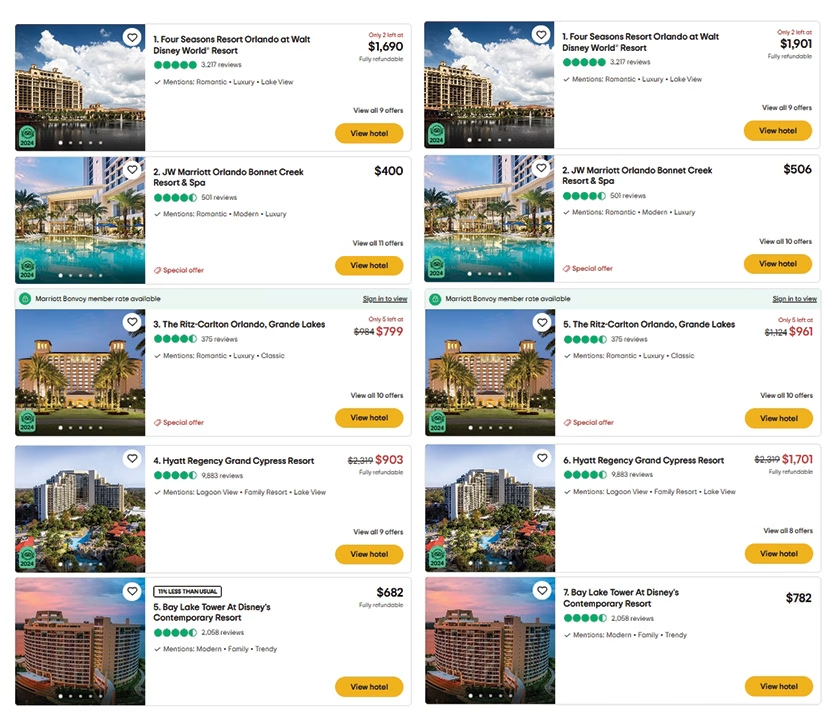
New Hotel Pricing Rules That Could Save You Money On Your Next Trip
Table of Contents
ToggleHidden fees and bait-and-switch pricing tactics have been a longstanding issue in the travel and hospitality industry. These deceptive practices not only frustrate consumers but also tarnish the reputation of businesses that employ them. With the Federal Trade Commission (FTC) recently announcing the “Junk Fees Rule” aimed at combating such practices, the industry is poised for significant change. In this article, we’ll explore what bait-and-switch pricing means, how it affects consumers and businesses, examples of hidden fees, and what steps the hospitality sector must take to comply with the new regulations.
What Is Bait-and-Switch Pricing and Hidden Fees?
 Bait-and-switch pricing is a deceptive tactic where consumers are lured by an advertised price that seems affordable, only to discover hidden fees or charges later in the booking process. In the hospitality sector, these fees can range from resort fees to convenience charges, often inflating the final price significantly.
Bait-and-switch pricing is a deceptive tactic where consumers are lured by an advertised price that seems affordable, only to discover hidden fees or charges later in the booking process. In the hospitality sector, these fees can range from resort fees to convenience charges, often inflating the final price significantly.
Hidden fees can be mandatory or optional but are frequently buried in the fine print or disclosed at the last minute. These practices make it difficult for consumers to compare costs accurately and budget effectively for their trips.
Who Is Affected by Hidden Fees?
Hidden fees aren’t just a hotel problem—they extend across various segments of the travel industry, including:
- Hotels: Resort fees, amenity charges, parking fees.
- Vacation Rentals: Cleaning fees, service fees, and maintenance charges.
- Online Travel Agencies (OTAs): Service and booking fees.
- Airbnb and Similar Platforms: Cleaning fees, host service charges, and taxes.
- Other Accommodations: Destination fees in urban hotels or extra costs for utilities in rural rentals.
These practices impact a wide range of travelers, from vacationers to business professionals, by obscuring the true cost of accommodations and creating an uneven playing field for businesses that advertise honest, all-inclusive pricing.
Before and After: The Real Cost of Hidden Fees
The effects of hidden fees on consumers are profound and multifaceted:
- Financial Stress: Unplanned expenses strain budgets, especially for families and budget-conscious travelers.
- Frustration and Distrust: Discovering hidden costs undermines trust in brands and discourages repeat business.
- Inhibited Comparison Shopping: With inconsistent pricing formats, consumers struggle to identify the best deals.
- Wasted Time: Consumers spend additional hours trying to decipher the true cost of bookings.
For example, a traveler booking a room advertised at $150 per night may discover additional fees upon checkout:
- Resort fee: $40 per night
- Parking fee: $25 per night
- Taxes and service fees: $20 per night
This transforms the total cost into $235 per night—nearly 60% higher than the advertised price. Including a before-and-after visual will highlight these differences, helping travelers better understand how hidden fees affect their budgets.

Impact on Hotels and Hospitality Businesses
While hidden fees may generate short-term revenue, they come with long-term consequences:
Reputational Damage
Hidden fees erode customer trust, leading to negative reviews, decreased loyalty, and a tarnished brand reputation. In a competitive market, reputation is critical for securing repeat business and attracting new customers.
Regulatory Scrutiny
With the FTC’s Junk Fees Rule, businesses risk legal penalties and enforcement actions if they fail to comply with transparency requirements.
Operational Challenges
Hotels that rely on hidden fees will need to overhaul their pricing structures and marketing strategies. This may involve staff training, system upgrades, and renegotiation with third-party platforms.
Details of the FTC’s Junk Fees Rule
The FTC’s Junk Fees Rule, finalized in late 2024, is designed to ensure transparent pricing in industries like live-event ticketing and short-term lodging. Here’s what the rule entails:
- Clear Disclosure: Businesses must prominently display the total price, inclusive of all mandatory fees, in advertisements and booking processes.
- Prominent Placement: The all-in price must be more visible than individual line-item costs or breakdowns.
- Specificity for Exclusions: Fees like taxes or shipping must be clearly explained before consumers enter payment information.
The rule will go into effect 120 days after its publication in the Federal Register, giving businesses time to adjust.
 Why the Rule Matters
Why the Rule Matters
For Consumers
- Transparency: Ensures upfront clarity on costs, enabling better decision-making.
- Time Savings: Eliminates the need to hunt for hidden fees, saving consumers millions of hours annually.
- Fairness: Prevents deceptive practices, creating a level playing field for all consumers.
For Businesses
- Level Competition: Encourages fair practices and deters companies from undercutting competitors through deceptive pricing.
- Improved Customer Trust: Transparent pricing fosters loyalty and repeat business.
- Compliance Costs: While some businesses may face short-term challenges adapting, long-term benefits include reduced customer complaints and regulatory risks.
Examples of Hidden Fees in the Hospitality Industry
Common Hotel Fees
- Resort Fees: Cover amenities like pools, gyms, and Wi-Fi but are often mandatory.
- Destination Fees: Applied in urban locations for discounts or access to local attractions.
- Parking Fees: Charged for on-site or valet parking.
- Early Check-In/Late Check-Out Fees: Additional charges for flexibility around check-in times.
- Tourism Taxes: Imposed by local governments.
- Service Charges: Fees for housekeeping or bellhop services.
- Energy Surcharges: Offset utility costs.
- Pet Fees: For accommodating pets in guest rooms.
Vacation Rental Fees
- Cleaning Fees: Often substantial, especially for larger properties.
- Service Fees: Charged by platforms like Airbnb.
- Host Fees: For maintenance or property management.
What Hotels and Hosts Need to Do
To comply with the Junk Fees Rule and improve customer experiences, businesses must:
- Reassess Pricing Strategies: Shift to transparent, all-inclusive pricing models.
- Update Booking Platforms: Ensure total prices are displayed prominently across all channels, including third-party websites.
- Train Staff: Educate employees on compliance requirements and customer communication strategies.
- Review Contracts with OTAs: Align practices with platforms like Expedia or Booking.com to reflect new regulations.
- Engage in Proactive Communication: Notify guests about pricing changes and emphasize transparency.
Conclusion
The FTC’s Junk Fees Rule represents a pivotal step in fostering transparency and fairness in the hospitality industry. For travelers, it promises clarity and confidence in booking accommodations without hidden surprises. For businesses, it offers an opportunity to rebuild trust, enhance competitiveness, and align with evolving consumer expectations.
By embracing these changes, hotels, vacation rentals, and platforms like Airbnb can turn a potential challenge into a chance for meaningful growth. Transparent pricing isn’t just good ethics—it’s good business.
FAQs
- What is bait-and-switch pricing?
Bait-and-switch pricing advertises a low price to lure consumers, then adds hidden fees, inflating the final cost. - What industries does the Junk Fees Rule cover?
The rule targets live-event ticketing and short-term lodging, including hotels and vacation rentals. - How can travelers avoid hidden fees?
Review pricing details thoroughly, choose transparent booking platforms, and inquire directly about additional costs. - What are common hotel fees?
Resort fees, parking fees, service charges, and destination fees are among the most common. - When does the Junk Fees Rule go into effect?
The rule becomes effective 120 days after its publication in the Federal Register. - How will this affect hotel pricing strategies?
Hotels must display all-inclusive prices upfront and clearly disclose any additional fees before payment.

 Why the Rule Matters
Why the Rule Matters